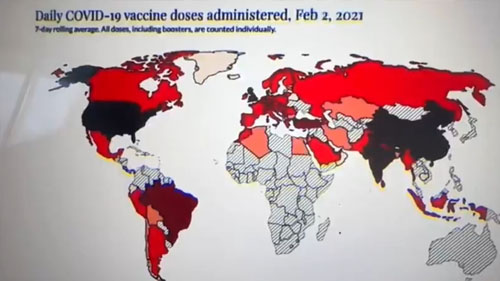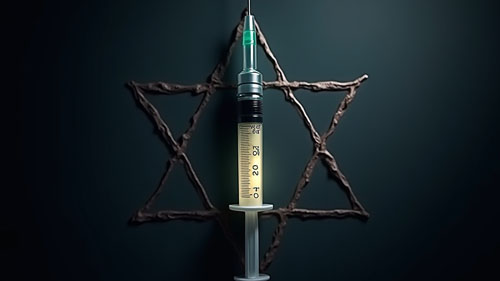| Recent Featured Videos and Articles | Eastern “Orthodoxy” Refuted | How To Avoid Sin | The Antichrist Identified! | What Fake Christians Get Wrong About Ephesians | Why So Many Can't Believe | “Magicians” Prove A Spiritual World Exists | Amazing Evidence For God | News Links |
| Vatican II “Catholic” Church Exposed | Steps To Convert | Outside The Church There Is No Salvation | E-Exchanges | The Holy Rosary | Padre Pio | Traditional Catholic Issues And Groups | Help Save Souls: Donate |  |









 " />
" /> " />
" /> " />
" /> " />
" /> " />
" />




Baptism (John 3:5) Vs. The Eucharist (John 6:53) In Regard To Necessity
Bro. Peter Dimond
A false traditionalist priest recently accused us of blatant modernism because we point out a difference in the wording and in the ultimate application of Jesus’ profound statements in John 6, concerning the necessity to receive the Eucharist for salvation, and John 3:5 concerning the necessity to receive the Sacrament of Baptism for salvation. We will quote what he said and then refute it.
Not surprisingly, he makes a mistake and blatantly mispresents our position. Other people and groups can’t refute what we say. Consequently, if they’re not attempting to ignore us or directly lying about us, which happens a lot, the most common way they try to address what we put out is with a straw man. That is, they will pretend like they are addressing what we say when in fact they are slightly or significantly modifying what we assert and then attacking the straw man they have constructed. So if you hear anyone who tries to address our material, even if they act like they are familiar with it, don't necessarily believe them unless they are quoting us directly and in context; for people often use straw men and misrepresent what we say.
That’s what happened here, but let’s first look at the verses. In Our Lord’s profound statement in John 6:53 (John 6:54 in some versions), He says.
For all the Protestants out there, John chapter 6 is proof of the real presence of Jesus Christ in the Eucharist, as the ancient Christian Church recognized.
If you reject that Jesus Christ is present in a validly consecrated Eucharist, you are not a Christian. John 6:53 expresses the obligation to receive His Body and Blood to be saved. In expressing this obligation, Our Lord uses the second person plural to say unless you eat, and the second person plural to say unless you drink. The use of the second person plural, you, is clear in the Greek text and in the Latin Vulgate translation.
JOHN 6:53
“... ‘Amen, Amen, I say to you, unless you eat the flesh of the Son of Man and drink his blood, you have no life in you.”
GREEK: Ἀμὴν ἀμὴν λέγω ὑμῖν, ἐὰν μὴ φάγητε τὴν σάρκα τοῦ υἱοῦ τοῦ ἀνθρώπου καὶ πίητε αὐτοῦ τὸ αἷμα, οὐκ ἔχετε ζωὴν ἐν ἑαυτοῖς.
Our Lord doesn’t say unless one or unless a man eats the flesh of the Son of man and drinks His blood he has no life. He says: unless you. But in John 3:5 Our Lord uses different language
JOHN 3:5
Concerning the necessity to receive water baptism, He says:
“Amen, Amen, I say to you, unless one is born of water and the Spirit, he cannot enter the Kingdom of God.”
GREEK: Ἀμὴν ἀμὴν λέγω σοι, ἐὰν μή τις γεννηθῇ ἐξ ὕδατος καὶ Πνεύματος, οὐ δύναται εἰσελθεῖν εἰς τὴν βασιλείαν τοῦ Θεοῦ
Our Lord used different language in John 3:5 because there are no exceptions to receiving water baptism for salvation, as the Catholic Church has taught. The obligation applies to everyone. But there are certain exceptions to the necessity of receiving the Holy Eucharist. Now, contrary to what the heretical priest says, we do not say that Our Lord’s words in John 6 only apply to the people he was directly speaking to in the first century. That’s a misrepresentation of our position and another example of how sloppy heretics are when they attempt to deal with these issues. Rather, in our book and elsewhere we explicitly state:
So, contrary to what the false traditionalist priest claims, we make it clear that the necessity to receive the Eucharist applies in every century, but it applies to the category of people Jesus had in mind (which is reflected by His choice of words): that is, all who hear the command and can fulfill it. Baptism, however, applies to every single man without exception. That’s why Our Lord used the words that He did in John chapter 3.
Now it’s very interesting that various pre-Vatican II theologians made a similar point about the difference in wording between John 3 and John 6. This is from a work on the sacraments in general by four pre-Vatican II theologians, including Fr. Joseph de Aldama. The work was given an imprimatur in 1956. We don’t agree with everything they say, but they correctly acknowledge that there is significance to the difference in language that can be found in these two verses.
Pre-Vatican II theologians: “… from the grammatical form the difference [between John 3 and John 6] is apparent. For, when Jesus is speaking to Nicodemus [in John 3], in a general way about anyone born, he says: Unless one is born again; here there is no distinction, not even from the context, between children and adults, and no exception is permitted. However, in his Eucharistic discourse [in John 6] Christ is speaking to adults, whom he commands: Unless you eat.” - Fr. Joseph de Aldama (with Gonzalez, Sola and Sagües), Sacrae Theologiae Summa IVA, On The Sacraments In General, Imprimatur 1956, p. 159.
As we can see, they make the same general point that we do about the distinction between the language used by Our Lord in these two verses (a point the foolish false traditionalist priest wrongly called modernism). Now, we would be even more precise than they were and emphasize that the difference between John 3:5 and John 6:53 is not merely that John 3:5 applies to everyone and that John 6:53 applies to adults. Rather, it is that John 3:5 applies to everyone and John 6:53 applies to all who hear the command and can fulfill it; for an adult can be saved without receiving the Holy Eucharist if he simply doesn’t have access to it. Examples would be adults who die shortly after baptism, the Japanese Catholics and others in history who lived without access to the Eucharist, and people today during the Great Apostasy who for the most part don’t have an acceptable option for receiving the Eucharist.
Thus, this heretical priest (who accepts the heresy that souls can be saved in false religion and is sadly a modernist heretic) manages not only to blatantly misrepresent our position but also ridicule a perfectly valid distinction about the difference in Our Lord’s words in these passages. But what do you expect from a heretic who believes that Jews, Buddhists, etc. can be saved without the Catholic faith and holds that that there’s no obligation to reject the notorious apostate Francis as a heretic, while he condemns people who believe exactly what Our Lord said in John 3:5 (and what the Church dogmatically teaches) on the necessity of water baptism? By the way, if you want proof that the aforementioned priest heretically believes that souls can be saved in false religions, see our website or just ask him if he condemns as heretical Archbishop Lefebvre’s statements that souls can be saved in a religion other than the Catholic religion. A true Catholic must condemn those statements as heretical. Someone who would not do so does not profess the true faith.
St. Thomas Aquinas also admits that the Eucharist is not necessary for salvation in the same way as Baptism.
So, does the Catholic Church understand the words of Jesus Christ in John 3:5 as we do, that is, as they are written? Yes, it does. First, let’s quote St. John Chrysostom, father and doctor the Church. He was not the Magisterium, but his statement on this passage, which indicates that John 3:5 is to be understood absolutely, is consistent with what the Magisterium has taught.
St. John Chrysostom, Homily 25 on the Gospel of John (John 3:5): “What says He [i.e. Jesus]? Verily I say unto you, Unless a man be born of water and of the Spirit, he cannot enter into the Kingdom of God. What He declares is this: You say that it is impossible, I say that it is so absolutely possible as to be necessary, and that it is not even possible otherwise to be saved… Hear, you as many as are unilluminated, shudder, groan, fearful is the threat, fearful the sentence. It is not (possible), He says, for one not born of water and the Spirit, to enter into the Kingdom of heaven; because he wears the raiment of death, of cursing, of perdition, he has not yet received his Lord's token, he is a stranger and an alien, he has not the royal watchword. Except, He says, a man be born of water and of the Spirit, he cannot enter into the Kingdom of heaven.”
At the Council of Florence, concerning the Sacrament of Baptism, it was declared:
In every single dogmatic statement on John 3:5 the words of Our Lord are understood as they are written. Thus, the position that no one can be saved without the Sacrament of Baptism is the teaching of the Catholic Church. Those who deny or condemn this position reject the words of Jesus Christ and the dogmatic teaching of the Church.
Copyright © 2020 Most Holy Family Monastery
Sign up for our free e-mail list to see future vaticancatholic.com videos and articles.
Recent Content
^